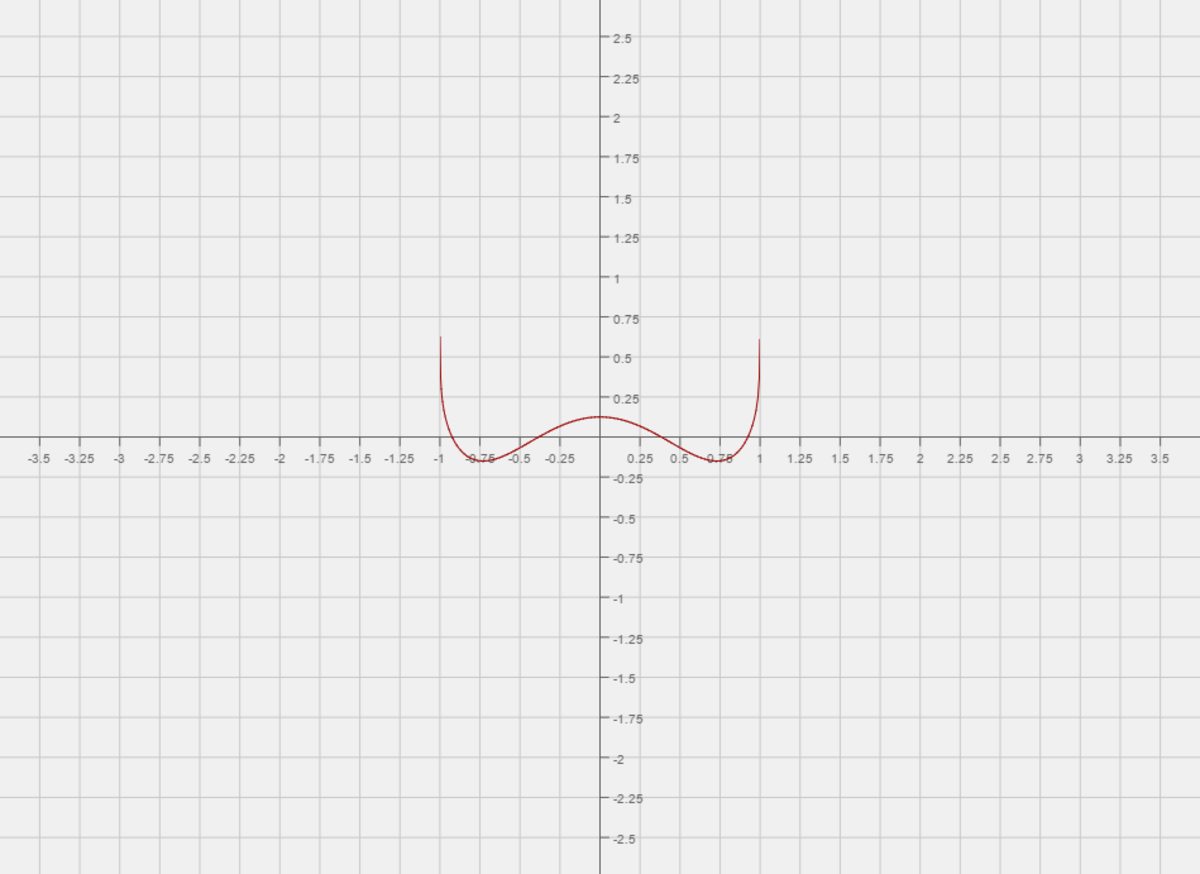Minimizing Resultant Volume

Let , , , and, be real constants. Minimize the volume of the region bounded between , and , when it is revolved about the -axis.
If this volume can be expressed as , where and are coprime positive integers, submit your answer as .
The answer is 129.
This section requires Javascript.
You are seeing this because something didn't load right. We suggest you, (a) try
refreshing the page, (b) enabling javascript if it is disabled on your browser and,
finally, (c)
loading the
non-javascript version of this page
. We're sorry about the hassle.
The Volume V ( a , b , c , d ) = π ∗ ∫ − 1 1 1 − x 2 ( x 4 + a x 3 + b x 2 + c x + d ) 2 d x =
π ∗ ∫ − 1 1 1 − x 2 ( x 8 + 2 a ∗ x 7 + ( a 2 + 2 b ) ∗ x 6 + 2 ( a b + c ) ∗ x 5 + ( 2 d + 2 a c + b 2 ) ∗ x 4 + 2 ( a d + b c ) ∗ x 3 + ( 2 b d + c 2 ) ∗ x 2 + 2 c d ∗ x + d 2 ) d x =
Let x = s i n θ ⟹ d x = c o s θ d θ ⟹
V ( a , b , c , d ) = π ∗ ∫ 2 − π 2 π ( ( 2 1 − c o s ( 2 θ ) ) 4 + 2 a ( 1 − c o s 2 θ ) 3 s i n θ + ( a 2 + 2 b ) ( 2 1 − c o s ( 2 θ ) ) 3 + 2 ( a b + c ) ( 1 − c o s 2 θ ) 2 s i n θ + ( 2 d + 2 a c + b 2 ) ( 2 1 − c o s ( 2 θ ) ) 2 + 2 ( a d + b c ) ( 1 − c o s 2 θ ) s i n θ + ( 2 b d + c 2 ) ( 2 1 − c o s ( 2 θ ) ) + 2 c d s i n θ + d 2 ) d θ .
After simplifying we obtain:
I 1 = 1 6 π ∗ ∫ 2 − π 2 π ( 2 1 − c o s ( 2 θ ) ) 4 d θ = 1 2 8 3 5 π 2
I 2 = 2 a π ∗ ∫ 2 − π 2 π ( 1 − c o s 2 θ ) 3 s i n θ d θ = 0
I 3 = ( 8 a 2 + 2 b ) π ∗ ∫ 2 − π 2 π ( 1 − c o s ( 2 θ ) ) 3 d θ = 1 6 5 ( a 2 + 2 b ) π 2
I 4 = 2 ( a b + c ) π ∗ ∫ 2 − π 2 π ( 1 − c o s 2 θ ) 2 s i n θ d θ = 0
I 5 = ( 4 2 d + 2 a c + b 2 ) π ∗ ∫ 2 − π 2 π ( 1 − c o s ( 2 θ ) ) 2 d θ = 8 3 ( b 2 + 2 a c + 2 d ) π 2
I 6 = 2 ( a d + b c ) π ∗ ∫ 2 − π 2 π ( 1 − c o s 2 θ ) s i n θ d θ = 0 , I 6 = I 4 = I 2 = 0
I 7 = 2 2 b d + c 2 π ∗ ∫ 2 − π 2 π ( 1 − c o s ( 2 θ ) ) d θ = ( 2 2 b d + c 2 ) π 2
I 8 = d 2 π 2
⟹
V ( a , b , c , d ) = π 2 ∗ ( 1 2 8 3 5 + 1 6 5 ( a 2 + 2 b ) + 8 3 ( b 2 + 2 a c + 2 d ) + 2 1 ( 2 b d + c 2 ) + d 2 )
⟹
∂ a ∂ V = 0 ⟹ 5 a + 6 c = 0
∂ c ∂ V = 0 ⟹ 3 a + 4 c = 0
⟹ a = c = 0
∂ b ∂ V = 0 ⟹ 6 b + 8 d = − 5
∂ d ∂ V = 0 ⟹ 4 b + 8 d = − 3
⟹ b = − 1 , d = 8 1
and, ∂ a 2 ∂ 2 V = 8 5 π 2 > 0
∂ b 2 ∂ 2 V = 4 3 π 2 > 0
∂ c 2 ∂ 2 V = π 2 > 0
∂ d 2 ∂ 2 V = 2 π 2 > 0
and, the Hessian matrix
M = π 2 ∗ [ 8 5 0 0 0 0 4 3 0 0 0 0 1 0 0 0 0 2 ]
d e t ( M ) > 0 ⟹
we have a minimum value at ( 0 , − 1 , 0 , 8 1 )
⟹ V = 1 2 8 1 π 2 = n m π 2 ⟹
m + n = 1 2 9 .